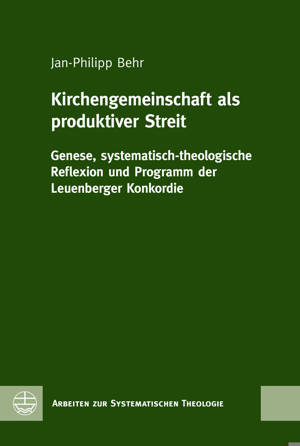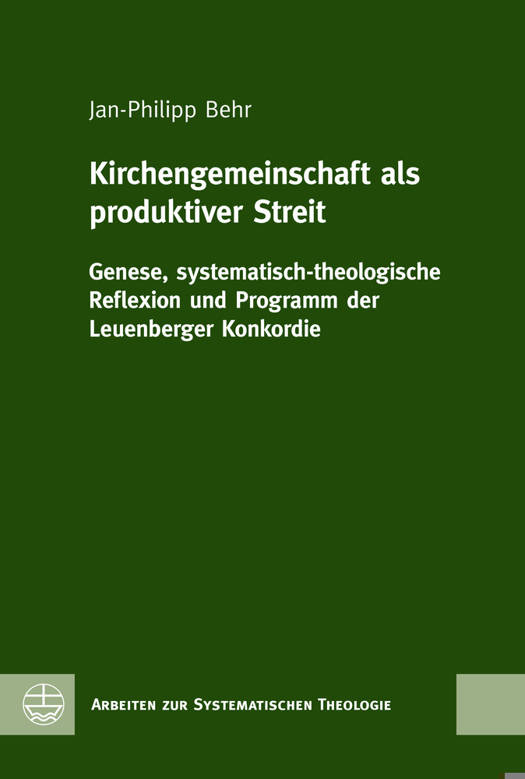
Bedankt voor het vertrouwen het afgelopen jaar! Om jou te bedanken bieden we GRATIS verzending (in België) aan op alles gedurende de hele maand januari.
- Afhalen na 1 uur in een winkel met voorraad
- In januari gratis thuislevering in België
- Ruim aanbod met 7 miljoen producten
Bedankt voor het vertrouwen het afgelopen jaar! Om jou te bedanken bieden we GRATIS verzending (in België) aan op alles gedurende de hele maand januari.
- Afhalen na 1 uur in een winkel met voorraad
- In januari gratis thuislevering in België
- Ruim aanbod met 7 miljoen producten
Zoeken
Kirchengemeinschaft ALS Produktiver Streit
Genese, Systematisch-Theologische Reflexion Und Programm Der Leuenberger Konkordie
Jan-Philipp Behr
€ 96,95
+ 193 punten
Uitvoering
Omschrijving
The Leuenberg Agreement marks a milestone in the 20th century ecumenical movement: It declares church communion among churches of different confessions based on their common understanding of the Gospel. Behr traces the agreement's history of development and its interpretation by different theologians. He concludes that the agreement calls the assenting churches to continue to be churches with their own doctrinal interests. The common understanding of the Gospel demands for ongoing theological dispute about the respective doctrinal positions. Church communion is not established by evening out the differences between the churches and their particular theologies, but it is implemented by each church introducing their confessional interests to the community.
Specificaties
Betrokkenen
- Auteur(s):
- Uitgeverij:
Inhoud
- Aantal bladzijden:
- 420
- Taal:
- Duits
- Reeks:
- Reeksnummer:
- nr. 16
Eigenschappen
- Productcode (EAN):
- 9783374066827
- Verschijningsdatum:
- 1/10/2020
- Uitvoering:
- Hardcover
- Formaat:
- Genaaid
- Afmetingen:
- 164 mm x 30 mm
- Gewicht:
- 792 g

Alleen bij Standaard Boekhandel
+ 193 punten op je klantenkaart van Standaard Boekhandel
Beoordelingen
We publiceren alleen reviews die voldoen aan de voorwaarden voor reviews. Bekijk onze voorwaarden voor reviews.









